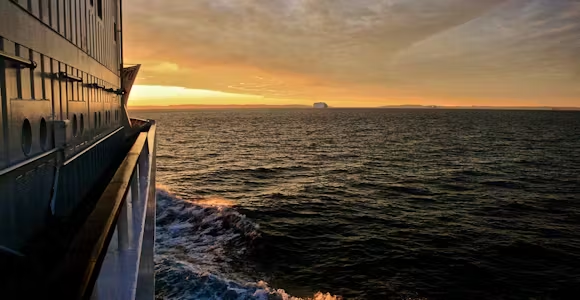
Northwest Passage Cruises
This labyrinthine waterway was long sought by early adventurers as a sea route linking the Northern Atlantic and Pacific Oceans. Canada's Arctic archipelago is therefore no …
Discover MoreSpecial Offers Available: Swoop has access to the widest range of offers and can help you find the right trip, cabin, & price.
Expert impartial advice at no extra cost: no-nonsense advice on 500 voyages across 25 ships
The Arctic Experts. No Compromises: there’s no question we can’t answer
The only B Corp certified Arctic specialist: so your adventures can be a force for good
A full concierge service, unlike booking direct: we leave nothing to chance in delivering your perfect trip
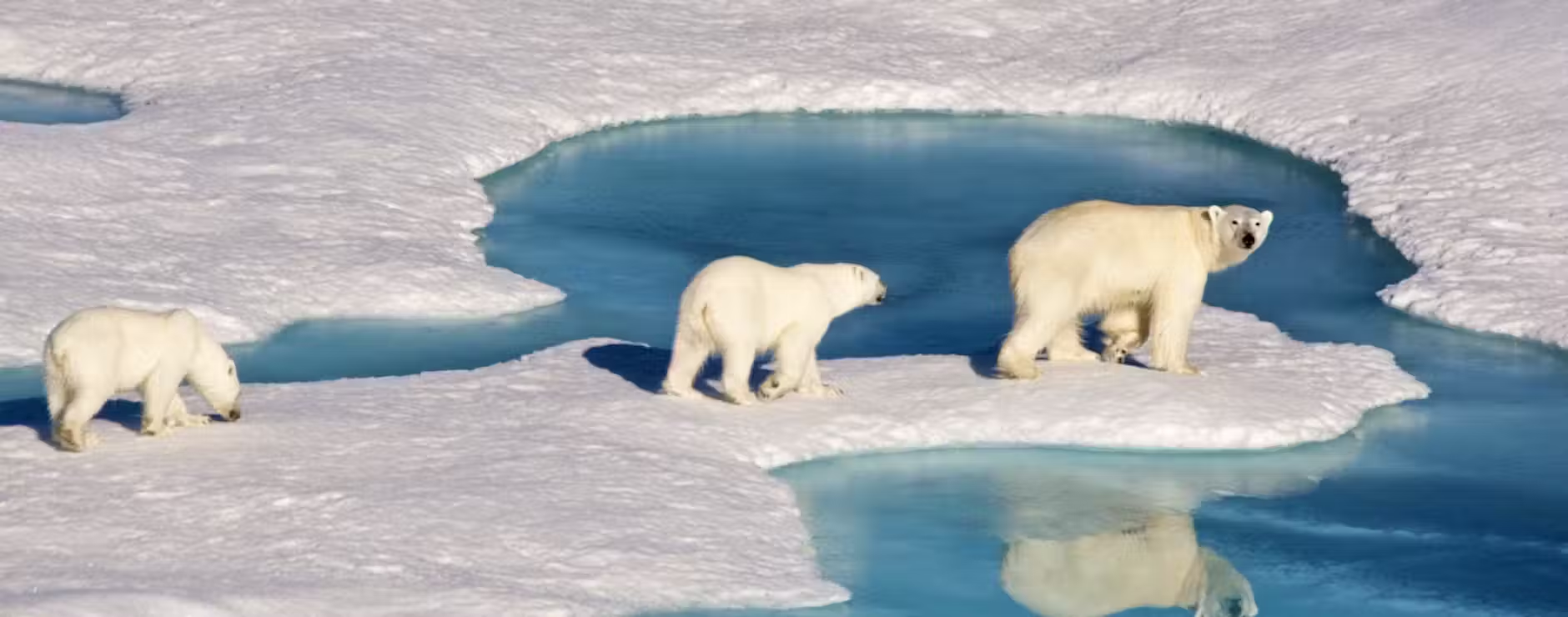
Exploring the Arctic on board an expedition vessel is a fully immersive and educational experience of which the daily landings are a key component. From the thrill of encountering Arctic wildlife to the solitude of the tundra, expect energetic, action-packed days.
While no two days are alike, typically each day onboard involves two key parts; an off-ship excursion lasting approx. 2-3 hours and ship-based activities while the vessel is under sail.
Special Offers:Swoop has access to the widest range of offers and can help you find the right trip, cabin, & price.
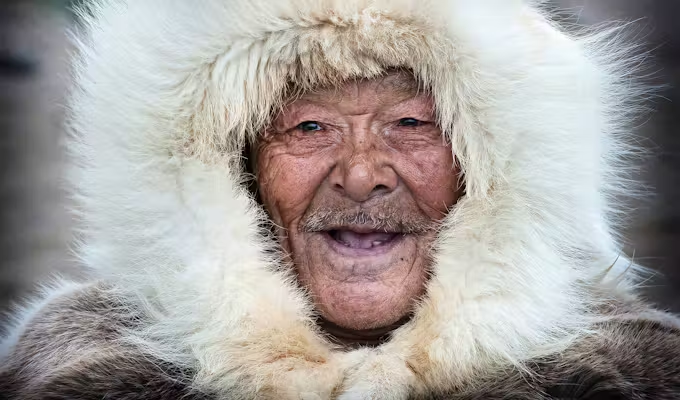
Traversing west to east this voyage takes you to iconic sites such as Cambridge Bay, Lancaster and Smith Sounds and Ellesmere Island, before exploring the fjords and towns of West Greenland. Bears, narwhal, musk ox, beluga and northern lights are…
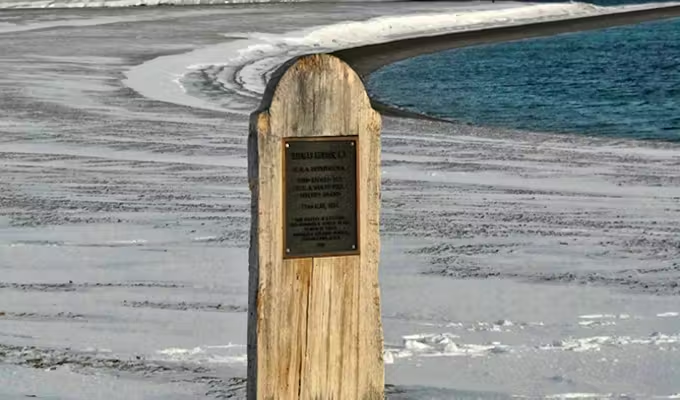
The big ice and small towns of West Greenland provide a stunning start to this trip before you sail across the Davis Straight to Baffin Island and enter the Northwest Passage. Blend history, scenery and wildlife; pay your respects at…
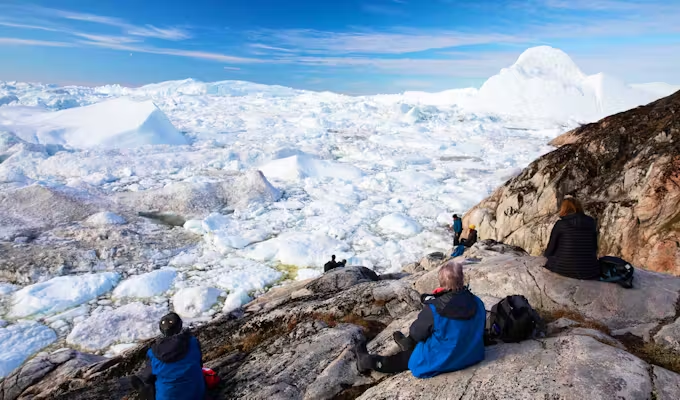
A full transit of the Northwest Passage is a truly epic undertaking, travelling in the footsteps of legendary explorers Amundsen, Franklin and Larsen. This voyage is distinguished by the small, nimble and comfortably appointed expedition ship you'll travel on, with…
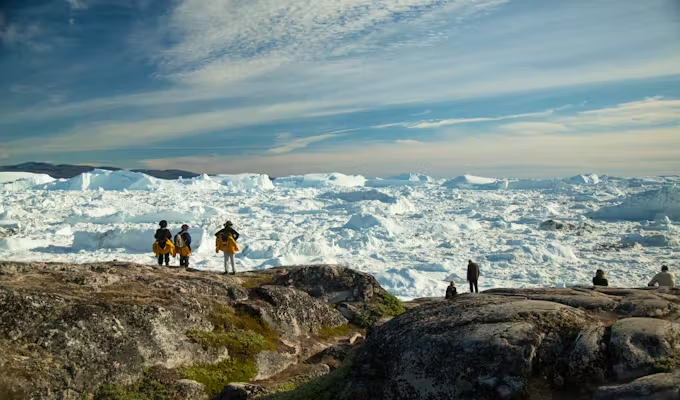
Spending time exploring Canada’s historic Northwest Passage and West Greenland, we like this voyage’s balance and variety as much as exploring little visited spots such as Thule, one of the northernmost towns in the world, and Smith Sound. Big ice,…
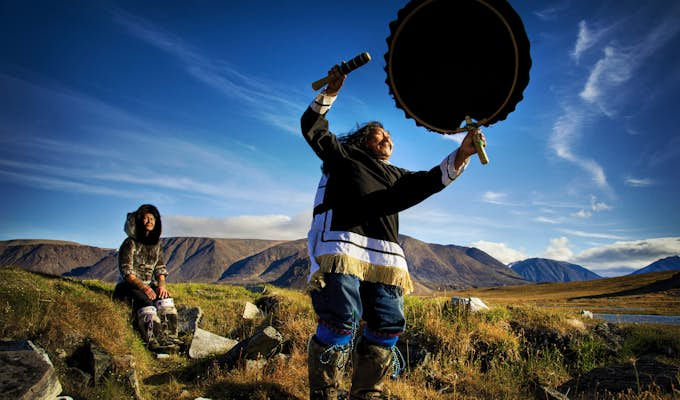
Visits to Canadian and Greenlandic communities Inuit history and culture are at the core of this journey, among those stops both Kinngait, the centre of Inuit Art and Nuuk, Greenland's capital are included. There's plenty of wildlife opportunities too with…
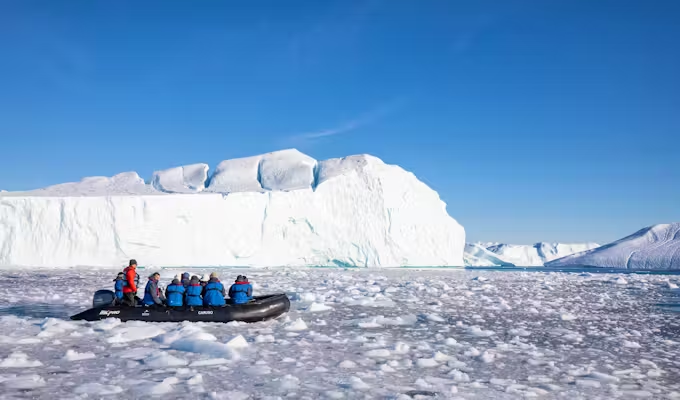
Beginning in Cambridge Bay, this westbound-arching route encapsulates the best that the Northwest Passage and West Greenland have to offer. Thread your way through the icy labyrinth of staggering landscapes, dramatic history, remote Inuit settlements and charismatic Arctic wildlife, with…
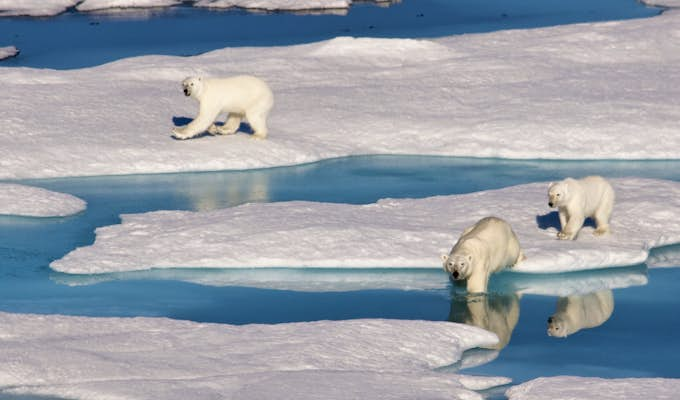
In the labyrinthine icy channels of the legendary Northwest Passage, explore the islands and channels that form Canada’s High Arctic region. Meet local indigenous people, encounter enigmatic Arctic wildlife – including walruses, beluga whales, polar bears, musk oxen and the elusive…
The history of Franklin’s fateful expedition is a massive draw for many travellers to the Northwest Passage.
Standing sentinel on a windswept beach of Beechey Island are the three graves of John Torrington, John Harnell and William Braine, the earliest casualties in what became the infamous, tragic opera. Their exhumation played a pivotal role in the unmasking of lead poisoning as a key contributor to the demise of Franklin's party. Standing next to the lonely graves of these lost Englishman, more famous in death than when alive, is certainly sobering. All Northwest Passage cruises make a stop at this site.

Graves of Franklin's men on Beechey Island
In 1859 the first evidence of what had happened to the Franklin expedition was found in a cairn at Victory Point on King William Island. This broke the news that Sir John himself had died and that the ships were abandoned.
In 2016 HMS Erebus was found in Queen Maud Gulf and HMS Terror in 2018 close to King William Island, with the Academic Vavilov involved in the search. For anyone with an interest in the Franklin story these are prime sites. Some voyages will land at Victory Point but very few are granted permission to visit the wreck sites.
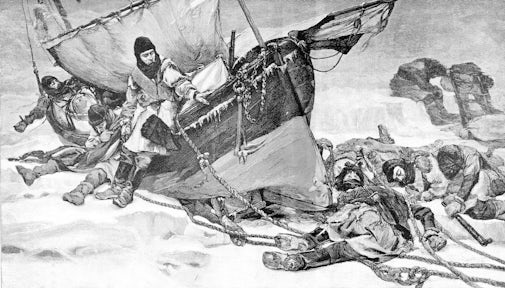
Besides from the Franklin story, the Northwest Passage is a treasure trove of history dating back millennia and includes the Dorset and Thule cultures that transited through this region following the fauna at the ice edge.
The remains of Sod Houses at sites such as Crocker Bay and the whale bone dwellings of Cornwallis Island tell a story of life lived at extremes, and of an oral culture that is being lost to history as once transient communities move into stationary settlements and face new challenges brought with the change.
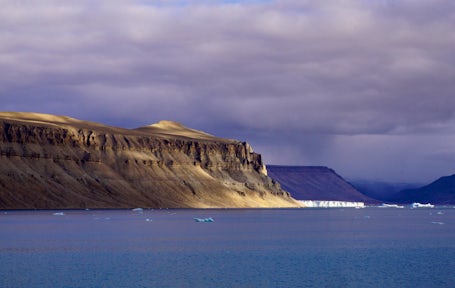
There is also modern Canadian history in the region; you’ll see evidence of trade with the Hudson Bay Company who established a trading post at Fort Ross, close to the eastern entrance to the Bellot Strait. Today the buildings stand abandoned, untouched from the moment the last inhabitant left, with the coffee pot on the stove as if ready to be poured.
The Royal Canadian Mounted Police (RCMP) patrolled the region for years and at Dundas Harbour you will see the deserted dwellings they left behind along with a small cemetery, the resetting place of two of the last men to be posted to these remotest of locations.
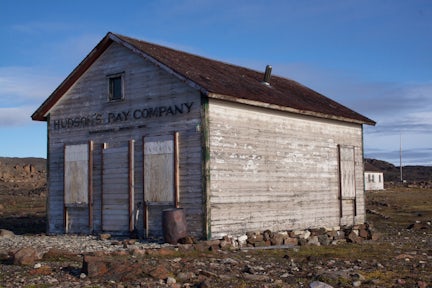
Trading post, Northwest Passage
Exploring the vast range of sites in the Northwest Passage not only puts into perspective the achievements of adventurers and explorers who have gone before, but really helps to paint a picture of what it might be like to live at the edge of the world.
Scattered through this wild and remote region there are a handful of communities that you may visit along the way. Some, like Pond Inlet, are fairly used to visitors through the summer months and others, such as Kugaaruk, very rarely see a ship at all.
These visits are greatly welcomed by the communities who will often put together a show of traditional dance and music, perhaps with traditional Arctic games as well. Local artists will also take an opportunity to show and sell their work, it’s one of the few times when you can pick up a memento of your journey.
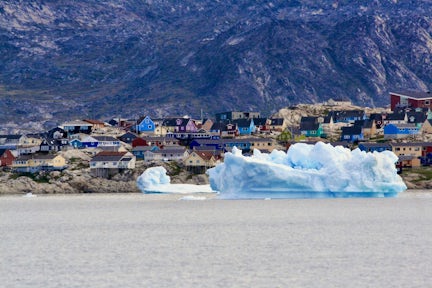
Be mesmerised by blue ice
Many of these settlements carry more significance for some travelers. At Gjoa Haven in Prince William Island, a 1,200 strong community, you can visit the monument of Roald Amunsden. This is where the great man over-wintered for two years from 1903 whilst completing the first successful transit of the passage.
It’s really worth stressing how much the visits mean to these remote populations, not just economically but also for contact with the outside world. Take time to talk to the inhabitants and you will soon discover how friendly they are, don’t be surprised if you find yourself having tea in someone's home! These towns may be small but they are home to fascinating people who have very different stories to tell.
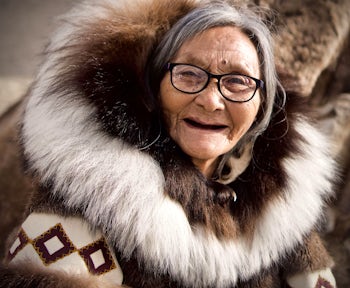
A resident of Gjoa Haven
Wildlife flows through the region with the ice, following its edge as it advances and retreats with the seasons. Lancaster Sound is often described as a wildlife ‘superhighway’; home to 75% of the world’s narwhal population and 20% of Canada’s beluga population, as well as walrus and bowheads. Additionally, 35% of Canadian seabirds breed here.
Of course, all these creatures are bait for the polar bear so keep your eyes peeled. Progress has been made to protect the wildlife in recent years, and the 109,000 kmsq Tallurutiup Imanga Marin Conservation area has recently been established.
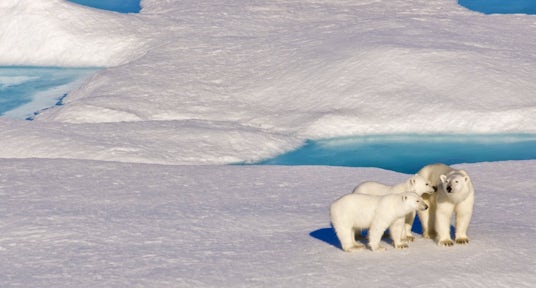
Birders should look out for excursions to sites like Prince Leopold Island, home to hundreds of thousands of thick-billed murres. With steep cliffs often shrouded in mist and surrounded by ice this can be a hugely atmospheric site experienced by zodiac.
Polar bears are always nearby but they frequent some sites more than others. The Bellot Strait is popular: this narrow channel divides Somerset Island from the northernmost point of continental North America, and is known for strong tides which can prove challenging even today. These currents throw up plankton attracting fish, and as a result it’s a good place for wildlife: seals, polar bears, arctic fox and musk ox.
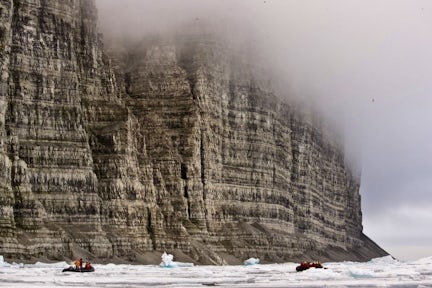
The bird cliffs of Leopold Island
You can typically expect one 5-6 hour off-ship excursion a day, which may take the form of either some land-based exploration, a zodiac cruise or a community visit.
Yes, definitely. Some landing sites offer better opportunities than others. During all land-based excursions you’ll be accompanied by members of the expedition team, who will also act as ‘bear guards’ keeping a sharp eye out for polar bears, as this is bear country.
Absolutely. At the heart of every expedition cruise is the team of Arctic specialists, each with their own chosen field of expertise.
As well as collectively delivering a programme of set lectures and workshops during the voyage, they will also accompany you on all landings to help narrate and answer your questions.
Although every effort will be made to follow the original itinerary, the short answer is "no they're not". While every trip will depart with a planned itinerary there are many factors that can impact the decision or ability to land at specific sites.
In the Northwest Passage ice is often the biggest factor and can, at times, cause an entire trip to be re-routed. Polar bears are another threat to landings, sighting one of these predators in the vicinity of a landing site will mean that no one is going ashore.
The decision to land or not is in the hands of the captain and the expedition leader, the former being in responsible for the ship and the latter for your safety. Wherever possible, if a landing site is missed, it will be replaced by an equivalent.

This labyrinthine waterway was long sought by early adventurers as a sea route linking the Northern Atlantic and Pacific Oceans. Canada's Arctic archipelago is therefore no …
Discover More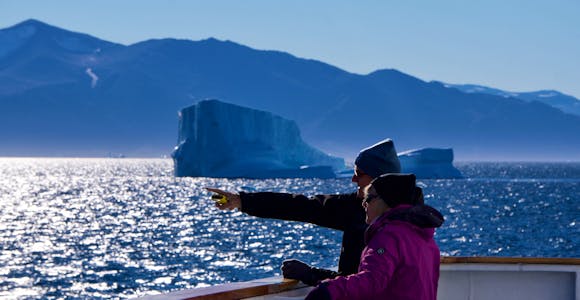
The Northwest Passage, a beautiful and sparsely populated labyrinth of islands stretching from the Atlantic to the Pacific Ocean. Vast distances and limited transport means joining…
Discover More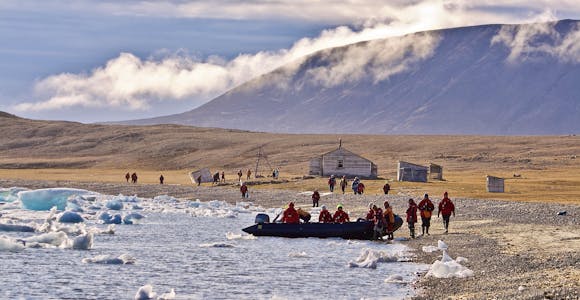
For the explorer, there are few places evocative as the Northwest Passage. For centuries men sought a way through the ice; even today passage is not guaranteed. This is a true …
Discover More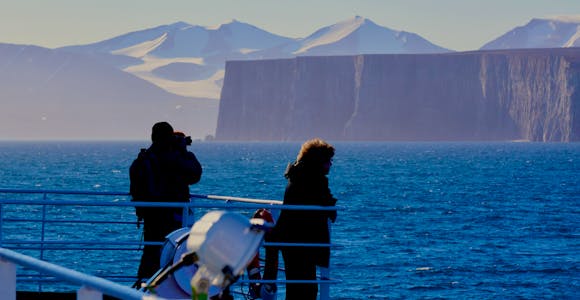
There’s very good reason why the Northwest Passage is only open to visitors from July to September: it's the only time average temperatures are above freezing, and the ice has …
Discover MoreMaking the correct choice of ship is key. With firsthand experience of all of the ships we offer, let Swoop help guide you to exactly the right one.
We'll spend some time listening to your aspirations, then discuss the kind of experience that might suit you.
Next we'll discuss the options, shortlist the best trips for you and present you our impartial recommendations.
We'll place a 24 hour hold on your preferred option - without obligation - whilst we talk through the details.
This website uses cookies to ensure you get the best experience on our website. Privacy policy
We don’t charge a commission and there are no hidden fees. Just impartial, expert advice from the leading Polar cruise agent. Schedule a call with our Arctic Experts today.